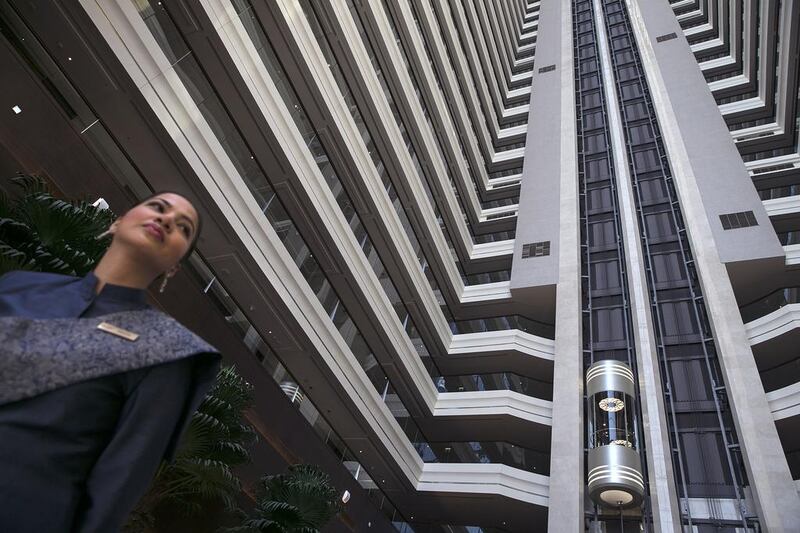Finding skilled hospitality staff with the necessary "star quality" is causing headaches for the country's hoteliers, as a shortage of talented chefs, chauffeurs, and sommeliers threatens to slow the industry's growth.
And this is set to worsen as Expo 2020 in Dubai "puts more pressure on the labour market at every level of the organisation," said Laurent Voivenel, the chief executive of Hospitality Management Holdings.
The Expo is expected to generate around 110,000 new jobs in the travel and tourism sector, the Government estimates. But hiring that number of people with the relevant skill sets may not be easy.
“What people are talking about is the quality of people in the tourism industry rather than total manpower for the industry,” said Khamis Buamim, chairman of Drydocks World and Maritime World. “You need to train people. We’re close to billions of people from the subcontinent to Africa to the Arab world, [so] there is no real shortage.”
But as the hospitality sector develops in China, Singapore, Thailand and Vietnam, Dubai will have to compete harder to attract new workers, said Richard Thompson, the editorial director of Meed.
“In Dubai there are not many people in the decision-making positions, but mostly at the operative level,” he said. “And a lot of the operative jobs are lowly paid, and Dubai will be competing with other markets to get enough people from India, Sri Lanka and South East Asia.”
Just finding enough people with the right experience and language skills will be a problem for the sector, he said.
Economic growth in traditional source markets is also making the move to Dubai less attractive for some candidates. “In India and Thailand, economic prospects are on the up, so people are less inclined to pack up and leave their families unless it’s a meaningful wage increase,” said Martin McGuigan, the head of reward consulting at Aon Hewitt.
The pressure is also opening up new markets, such as South and Central America besides more aggressive recruitment drives in Russia, East Europe and East Asia and the subcontinent.
But finding skilled workers remains a challenge. “There’s a never-ending queue of [unskilled] people, said Mr McGuigan, “but you can’t run a hotel with an army of bellboys.”
The labour market poses an “investment dilemma” for hotels, because “the lead time [to train a new hospitality sector employee] is 18 to 24 months to be competent and skilled in a 5-star hotel,” he said.
“Better hotels invest more into getting staff up to speed [with training], while other hotels put more into wages, circumventing the need to train new hires [by hiring industry-ready workers].”
The Thai hotel chain Dusit Thani, which has a property on Shaikh Zayed Road in Dubai and another in Abu Dhabi, has increased its internal training courses for staff. It holds monthly leadership training courses for future managers.
“There is a skills shortage, [involving] mainly practical skills, such as how to serve different kinds of cheese or handle customer queries,” said Assia Riccio-Smith, the training manager at Dusit Thani Dubai. The company employs 470 staff in Dubai and Abu Dhabi.
Mr Voivenel prefers to train staff in-house, because “It’s cheaper than getting hotel-ready people from Europe.”
“But workers [from developing countries] are an excellent workforce, have an excellent attitude and, [though they] may not be as professional as employees from many other developed countries, they also don’t cost the same,” he said. “In the long run, it will cost you less.”
ssahoo@thenational.ae
abouyamourn@thenational.ae





